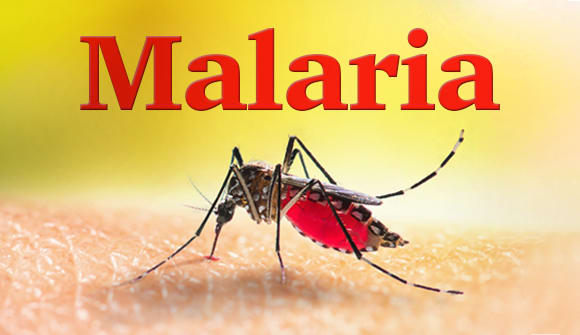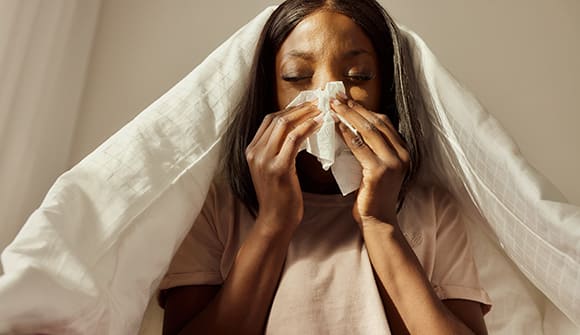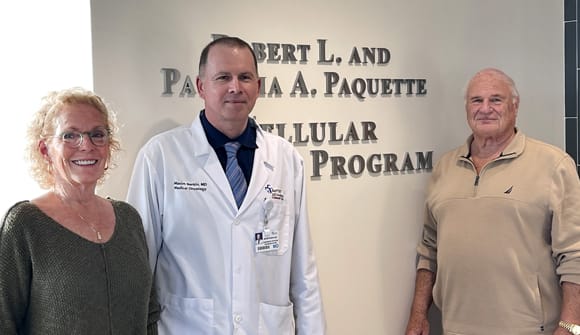Demystifying malaria
Experts urge prevention, not panic, amid U.S. cases.
Article Author: Juliette Allen
Article Date:

Though typically thought of as a disease confined to far-off places, malaria cases originating in the United States were recently reported for the first time in 20 years.
“These cases are ‘locally acquired,’ which means a mosquito first bit someone in the U.S. who was carrying the malaria parasite in his or her blood. The mosquito then bit another person, infecting him or her,” explained Shalika Katugaha, MD, system director of Infectious Diseases for Baptist Health.
According to the Florida Department of Health (FDOH), from late May through mid-July 2023, seven locally acquired cases of malaria had been reported in Sarasota County, Florida. A case has also been reported in Texas.
So, what does this mean for people in the United States, specifically in Florida? Dr. Katugaha answered some of the most common questions about malaria.
What is malaria?
“Malaria is an infectious disease caused by a parasite. It’s one of the most significant global public health problems,” Dr. Katugaha said. She explained there are four types of malaria parasites that infect humans. All of the recent locally acquired cases have been Plasmodium vivax infections, which is less likely to cause severe illness.
According to the Centers for Disease Control and Prevention (CDC), more than 240 million cases of malaria occur each year, with the vast majority (95%) in Africa.
“About 2,000 cases of malaria are diagnosed in the United States each year,” said Dr. Katugaha. “Most aren’t locally acquired; they’re in travelers and immigrants from countries where malaria transmission occurs.”
How is it spread?
Malaria spreads via infected mosquitoes.
“Specifically, the Anopheles mosquito transmits malaria by taking a blood meal from an infected person and then biting someone else, spreading the parasite to that person. This type of mosquito exists in places with warm and humid climates, like Florida.”
Malaria doesn’t spread from person to person like a respiratory illness and isn’t transmitted sexually.
What are symptoms of malaria?
A person typically begins feeling ill around 10 days after infection, though signs may develop as early as seven days or as late as a year after the mosquito bite, according to Dr. Katugaha. Symptoms of malaria typically include:
- High fever
- Chills and/or sweats
- Headache
- Muscle aches
- Fatigue
- Nausea and/or vomiting
- Diarrhea
Because malaria can cause loss of red blood cells, infected individuals may develop anemia and jaundice (yellowing of the skin and eyes).
“With prompt and correct treatment, people can be cured,” said Dr. Katugaha. “However, when left untreated, malaria can lead to severe complications such as kidney failure, seizures, confusion and death.”
According to the FDOH, all recent cases in Florida were treated and have recovered.
Is there a malaria vaccine?
Although there’s currently no malaria vaccine that’s widely available, Dr. Katugaha said scientists are working on it and clinical trials are underway.
“The parasite can evade the immune system by changing its surface and has a complex life cycle, so developing a vaccine has been challenging,” she explained. “If you’re traveling outside of the U.S. to an area of moderate or high transmission, there are many effective antimalarial drugs you can get for prevention.”
Should Florida residents and visitors be worried?
According to the CDC, the risk of malaria in the United States remains “extremely low.”
“While there’s no reason to panic, Florida residents should be cautious,” Dr. Katugaha said. That means taking precautions to prevent mosquito bites, like using the “Drain and Cover” method outlined by the FDOH:
- Drain standing water to prevent mosquito breeding. Remember to check garbage cans, buckets, toys, tarps, flowerpots and water bowls. Anywhere water collects is a place for mosquitoes to multiply.
- Cover doors and windows with screens, and your skin with clothing. Also use a mosquito repellant. According to the FDOH, “repellents with DEET, picaridin, oil of lemon eucalyptus, para-menthane-diol, 2-undecanone, and IR3535 are effective.” Before using any of these with an infant, check with your pediatrician first or use mosquito netting instead of spray.
While the risk of malaria in the United States is low, if you’re experiencing concerning symptoms, go to the nearest Emergency Center immediately. If you’re planning to travel abroad and have concerns about malaria or other diseases at your destination, talk with your primary care physician about preventive vaccines or medications. To find the right physician for you, call 904.202.4YOU (4968) or request an appointment online.
Sources: Florida Department of Health mosquito-borne illness advisory, Centers for Disease Control and Prevention health advisory



